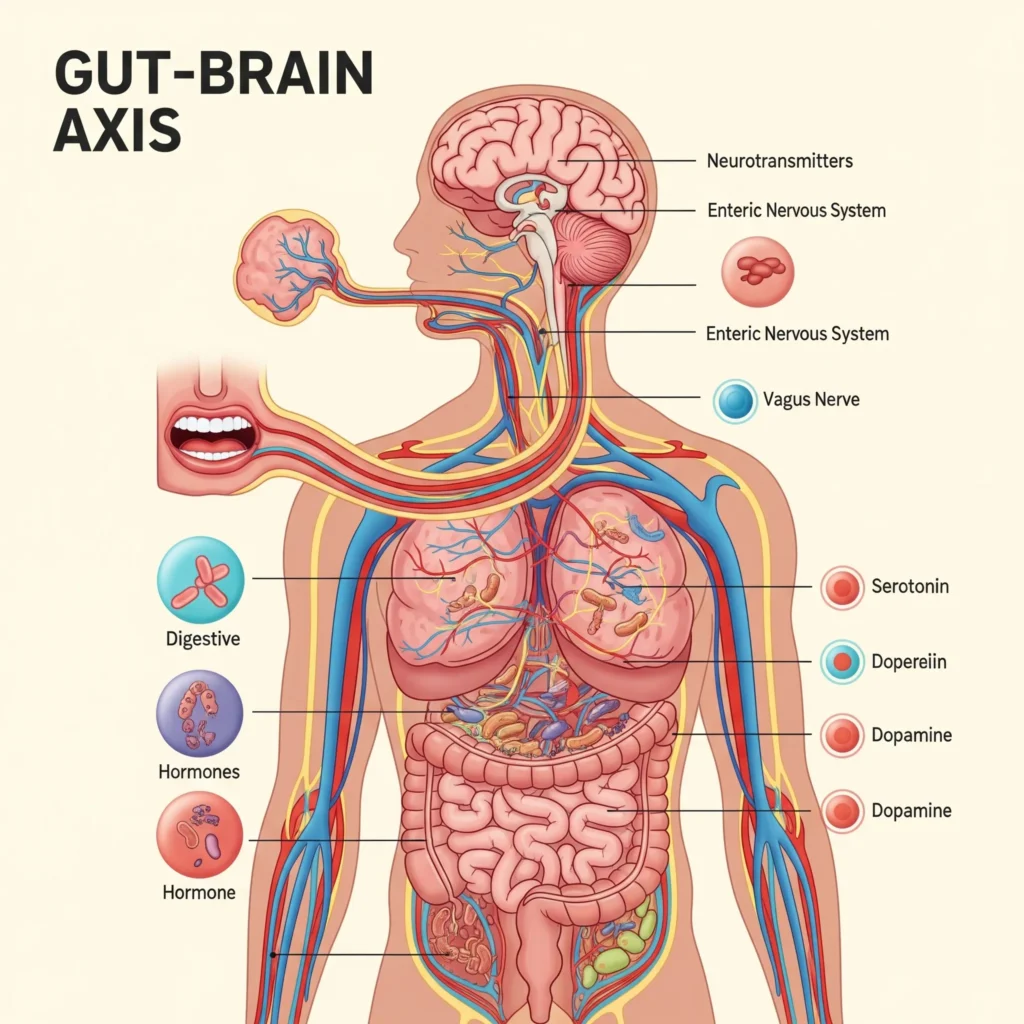Chronic diseases, such as diabetes, heart disease, and obesity, are increasingly prevalent globally, posing significant health challenges. While medical treatments are crucial, the role of dietary strategies for managing chronic diseases cannot be overstated. It’s about more than just following a recipe; it’s about understanding how food impacts our bodies at a fundamental level. This article delves into effective dietary approaches that empower individuals to take control of their health, moving beyond simple meal plans to embrace a holistic understanding of nutrition.
The Power of Whole Foods in Chronic Disease Management
Embracing whole foods is a cornerstone of effective dietary management for chronic conditions. Whole foods, which are unprocessed or minimally processed, are naturally rich in fiber, essential vitamins, minerals, and beneficial plant-based chemicals known as phytonutrients. These components work synergistically to support overall health and actively reduce the risk of developing or worsening conditions like high blood pressure, heart disease, and diabetes.
For instance, a diet centered on whole plant foods can lead to significant improvements in metabolic markers. Studies show positive changes in Body Mass Index (BMI), systolic blood pressure, and cholesterol levels. Consequently, these improvements can substantially lower the risks associated with chronic diseases, including heart failure and stroke.
Consider established dietary patterns like the Mediterranean diet and the DASH (Dietary Approaches to Stop Hypertension) diet. These models consistently emphasize a high intake of fruits, vegetables, whole grains, lean proteins, and healthy fats, while limiting processed sugars and unhealthy fats. Such approaches are repeatedly linked to a reduced incidence of chronic conditions and improved longevity.
Key Dietary Components for Disease Management
Understanding specific nutritional components and their roles is vital when implementing dietary strategies for managing chronic diseases.
Fiber: Your Gut’s Best Friend
Dietary fiber is an indispensable component of a healthy diet, renowned for its profound impact on digestive health and its ability to prevent chronic diseases. Many populations, particularly in Western countries, often consume far less fiber than recommended, leading to increased risks of metabolic disorders, gastrointestinal issues, and cardiovascular conditions.
Fiber exerts its benefits through multiple mechanisms. It enhances bowel motility, preventing constipation and supporting a diverse gut microbiota, which is crucial for immune regulation and metabolic health. Soluble fiber, found in oats and beans, helps regulate blood sugar by slowing glucose absorption, which is particularly beneficial for diabetes management. Furthermore, it aids in lowering LDL (“bad”) cholesterol levels. Insoluble fiber, abundant in whole grains, supports digestion and weight management.
A higher intake of dietary fiber is consistently linked to lower total cholesterol, improved blood pressure regulation, and reduced inflammation. In fact, research suggests that every 7 grams per day increase in dietary fiber correlates with a 9% reduction in cardiovascular disease risk. To learn more about how fiber interacts with your gut, explore our guide on Probiotics vs. Prebiotics: Understanding Gut Health.
Healthy Fats: Not All Fats Are Equal
The type of fat we consume significantly influences our health, especially in the context of chronic disease prevention. Contrary to outdated advice promoting low-fat diets, current research highlights that healthy fats are not only necessary but also highly beneficial. When unhealthy fats are reduced in processed foods, they are often replaced with refined carbohydrates, which can negatively impact blood sugar and insulin levels, potentially leading to weight gain and disease.
Unsaturated fats, including monounsaturated and polyunsaturated fats, are considered “good” fats. They actively lower disease risk by helping to maintain healthy cholesterol levels. Excellent sources include olive oil, canola oil, sunflower oil, nuts, seeds, and fatty fish like salmon and mackerel. These fats provide essential omega-3 and omega-6 fatty acids, which the body cannot produce on its own. Omega-3s, particularly from marine sources, are well-documented for reducing inflammation and improving heart health.
Conversely, saturated and trans fats are considered “unhealthy” fats. They can raise “bad” (LDL) cholesterol, increasing the risk of heart and circulatory diseases. Sources include processed meats, hard cheeses, butter, and some plant-based fats like coconut and palm oil. Limiting these and replacing them with unsaturated alternatives is a key dietary strategy for managing chronic diseases. For more detailed information on different fats, consider reading our article on the Types of Healthiest Cooking Oil.
Limiting Processed Foods and Sugars
Processed foods often contain high levels of unhealthy fats, added sugars, and sodium, which can exacerbate chronic conditions. These ingredients contribute to weight gain, increased blood pressure, and higher cholesterol levels. For example, a “trans-fat free” product might still be high in sodium, misleading consumers about its overall nutritional value.
A diet high in processed foods and low in fiber has been directly linked to a substantial rise in chronic diseases like obesity, diabetes, and heart disease. Therefore, opting for whole, unprocessed foods whenever possible is a crucial step. This allows for greater control over ingredients and ensures a healthier diet. Reducing sugar intake, specifically, helps manage blood sugar levels and lowers the risk of diabetes.
Beyond the Plate: Mindful Eating and Lifestyle
Effective dietary strategies for managing chronic diseases extend beyond just what you eat to include how you eat.
Mindful Eating for Better Health Outcomes
Mindful eating is a powerful practice that can significantly support chronic disease management. It involves focusing attention and awareness on your physical hunger, the eating experience, and your body’s response to food. This observational, non-judgmental approach helps distinguish between emotional and physical hunger cues, promoting healthier eating habits.
Research demonstrates that mindful eating can lead to measurable improvements in physical and emotional health, including reduced overeating, improved digestion, and decreased stress-related eating. It supports healthy weight management by enhancing the recognition of satiety and fullness cues, thereby avoiding restrictive dieting practices. Furthermore, mindful eating habits can reduce risk factors associated with heart disease, diabetes, and hypertension.
The Gut-Brain Connection
The intricate relationship between our gut and brain, known as the gut-brain axis, profoundly influences our overall health, emotions, and behavior. An imbalance in the gut microbiota, often caused by poor nutrition, can lead to an inflammatory response that, if sustained, may contribute to mental health disorders like anxiety and depression.
Nutritional intake directly impacts the production of neurotransmitters such as serotonin and dopamine, which regulate mood, appetite, and cognition. Therefore, dietary choices play a vital role in supporting mental well-being alongside physical health. Understanding this connection is an increasingly important aspect of holistic dietary strategies for managing chronic diseases.

Practical Steps for Adopting Dietary Strategies
Implementing these dietary changes doesn’t require an overnight overhaul. Gradual, sustainable adjustments are often more effective for long-term success.
- Start Small: Begin by incorporating one new plant-based meal per week or swapping out refined grains for whole grains. Small changes accumulate over time.
- Plan Ahead: Create shopping lists and meal plans focused on whole foods. This helps manage your diet, reduces decision-making stress, and ensures varied, interesting meals.
- Read Labels Critically: Understand how to decode nutrition facts panels, identify common allergens, and recognize misleading claims. This empowers you to make informed choices.
- Prioritize Hydration: Staying well-hydrated is fundamental to overall health and supports various bodily functions.
- Consult Professionals: For personalized guidance, especially when managing specific chronic conditions, consult a dietitian or healthcare provider. They can offer tailored advice and support.
Conclusion
Effectively managing chronic diseases requires a comprehensive approach, and dietary strategies for managing chronic diseases are at its core. By prioritizing whole, unprocessed foods, understanding the vital roles of fiber and healthy fats, and practicing mindful eating, individuals can significantly improve their health outcomes. Furthermore, recognizing the profound connection between diet, gut health, and mental well-being offers a holistic path to wellness. These informed food choices not only help manage existing conditions but also contribute to a healthier, more vibrant life. Remember, every meal is an opportunity to nourish your body and support your journey towards better health.





